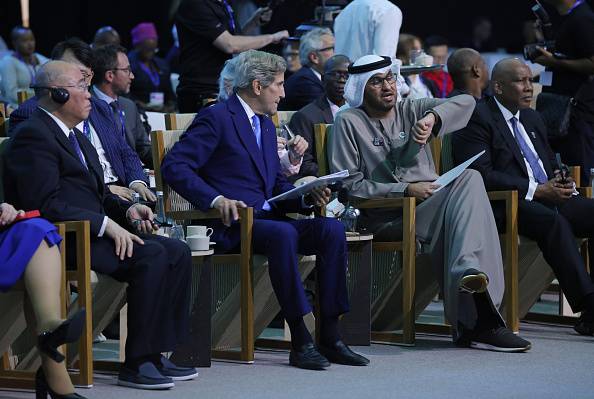

On the first day of COP28, the UN climate summit happening in Dubai, delegates rose to their feet to applaud a major announcement: five rich countries, plus the European Union, have pledged $420-million as seed funding for a new “loss and damage fund”.
The fund, agreed in principle at last year’s COP27, will help developing countries respond to the impacts of climate change.
Two days earlier, there was another bit of good news.
The Organisation for Economic Cooperation and Development (OECD), a collective of 37 mostly rich countries, said that developed countries are finally delivering on their promise to mobilise $100-billion a year in climate finance for developing countries, according to preliminary data.
This is progress. But it remains to be seen how exactly the money will be spent – and whether it will, in fact, reach the countries that need it most. The devil will be in the detail of how climate finance is structured, and what counts as climate finance. Recent history is not encouraging.
In the past 12 years, for example, the United Kingdom has given Africa at least £6.6-billion ($8.3-billion) in climate finance. In theory.
But a closer look at the figures reveals that nearly two thirds of that money went to companies and organisations based in the Global North.
Nearly 40% went to groups headquartered either in the UK or the United States, according to a new analysis by The Continent and UK-based media outlet Carbon Brief. This is based on a study of over 10,600 disbursements from the UK’s International Climate Fund (ICF).
More than a billion dollars of that money was handed to Global North consultancies like Abt Associates, Adam Smith International, KPMG and PwC.
The UK gave consultancies like these about $200-million more of its “climate finance for Africa”, than it gave to international NGOs, which, even when foreign registered, have a better track record of providing services on the continent. More than 90% of the UK climate funding supposedly disbursed to Nigeria and Ghana was in fact handed to such consultancies.
“This is not helpful”, said Faten Aggad, a professor at the Nelson Mandela School of Public Governance in South Africa. “Africa has real needs in climate finance. The money needs to reach those who need it. We know historically that these consultancies are expensive.”
Aggad said that consultancies can increase the cost of aid projects by as much as 30%. She also warned of the danger of local knowledge being sidelined in favour of “parachuted, overpaid western consultants” who come in with a “cut and paste approach” from other contexts.
There is also little clarity about what counts as climate finance as opposed to regular aid. For example, UN agencies and other multilateral institutions received nearly $3-billion of the UK’s $8.3-billion in climate finance for Africa.
But often, the projects funded – while important – were peripheral to climate, like the $21-million disbursed to the United Nations’ children’s agency to avert maternal and neonatal deaths.
This project included training health workers and providing “uninterrupted and sustainable clean energy systems and climate resilient water supply and infrastructure”. In that case, a portion of the money will be reported as climate finance, even though the project cannot be considered a direct climate action.
The practice of relabelling other aid projects as climate finance is a widespread problem. A recent estimate by the ONE Campaign, a US-based advocacy group, found that $115-billion in international climate finance was spent on things that have little to do with climate change.
“Putting the world back on track will take unprecedented investment, but instead we face the ‘wild west’ of climate finance – where efforts to protect both people and planet are undermined by broken promises, falsehoods and dubious accounting,” said David McNair, the executive director of policy at ONE.
“Without better reporting, hundreds of billions of dollars will continue to get swallowed in this black hole.”
The new fund will be housed by the World Bank. Developing countries were opposed to this, and wanted it to be independently managed.
They feared that the multilateral institution – influenced by the developed countries that are its biggest shareholders – will be able to fudge the numbers in a way that makes it look like the developed world is doing its fair share, even when the money rarely reaches where it is needed.
This article first appeared in The Continent, the pan-African weekly newspaper produced in partnership with the Mail & Guardian. It is designed to be read and shared on WhatsApp. Download your free copy here
The post Loss and damage climate fund: Rich countries give with one hand, take with the other appeared first on The Mail & Guardian.
If history is anything to go by, a lot of the money will go to consultancies and organisations in the global north
The post Loss and damage climate fund: Rich countries give with one hand, take with the other appeared first on The Mail & Guardian.





